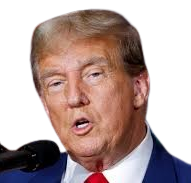
Transparency in democratic society centers on the elected representatives of the masses; those charged with the distribution and management of our resources, common good, power and authority. It is a self-testifying mechanism for the assessment and valuation (or estimate of importance and usefulness) of public servants and elective officeholders. With its existence or inexistence, the masses get or are deprived of the actual political performance of their elected representatives. Its presence or absence also draws the inquisitive eyes of the masses to measure the gap between the actual performance of their elected representatives and their target expectations from them. This assessed gap between the electorates’ expectations or desired performance (on their representatives) and the actual political performance stir and compel voters at forthcoming dispensations to vote for or against the elected representatives. No wonder John C. Maxwell wittingly declared that “Transparency breeds legitimacy.”
When an elected representative measures beyond or far above the marginal line of the people’s expectations or within and below it, political incentives (such as infrastructures and outlays) during electioneering seasons are worthless. Such incentives instead make obdurate the resolves of the electorates to either totally deny or give the public office-seeker their mandate by ballot-powers.
A well performed elected public-officeholder does not need political incentives (such as the habitual electioneering time’s infrastructural spree and goodness from their representatives) because their performances during the elapsing tenure are the loudest and most cherished political incentives. In this regard, transparency helps save great outlays for political officeholders and their polity. It saves excess costs for campaigns and rallies as it is the masses that seek for the well-performed and distinguished elective officeholder, begging for continuity in the representation and often, some of the electorates volunteer their personal resources to campaign and expend for them. In this way too, transparency ensures political stability, which has strong effects on economic stability.
According to the Indian sage, Narendra Modi, “Transparency is the key to good governance and e-governance is the only effective way of transparent governance.” Transparency, good governance and openness are essential platforms for economic sustainability. According to him, “While transparency reduces corruption, good governance goes beyond transparency in achieving openness. Openness means involving the stakeholders in decision-making process. Transparency is the right to information while openness is the right to participation.” This simply implies that transparency yields good governance and has electronic modalities for its assessment and accountability or access.
Carly Fiorina makes it clearer in declaring that “We need more transparency and accountability in government so that people know how their money is being spent. That means putting budgets online, putting legislation online.” It also implies information about the projects, efforts, achievements and challenges of governance, as well as periodic accountability on the polity’s outlays.
Consequently, transparency breathes accountability and fans the embers of trust, openness, honesty and credibility in governance. On this note, I seriously agree with Howard Schultz’s wise saying that “the currency of leadership is transparency.” When accountability is made a bureaucratic habit for civil and public servants, probabilities for corruption declines and misappropriation of public coffers, laissez-faire attitudes to public utilities and common-good diminish to abysmal level.
To this effect, one can confidently affirm that transparency is a panacea to the menace of corruption and sundry sleaze practices by public officials and contractors in present day democratic polity. Transparency plays proactive roles to the fight against corruption. It prevents the possibility of grand corruption, as through accountability, the masses are well informed about their resources-scales and administrative outlays, the administrators will constantly be apprehensive of their dignity being dented by sleazes and consequences of irresponsibility.
It is in this backdrop that the former UN Secretary General, Mr. Kofi Annan, said that “If corruption is a disease, transparency is a central part of its treatment.” This conversely implies that if transparency is a curative therapy, corruption is an ailment, and on this, I concur with Ivan Krastev in his declaration that “Transparency is not about restoring trust in institutions. Transparency is the politics of managing mistrust.” Yet, it is a proactive approach to ensuring trust and to disproving feelings of mistrust by the governed than the reactive approach to combating adverse effects of unaccountability in governance, which involves using or spending the meager resources available to fight what costs nothing to prevent- with transparency.
Transparency costs leadership little or nothing, compared with the huge resources that are lost due to non-transparency and unaccountability, and in fighting its sleazed-consequences. Accordingly, I want to ask here, who needs to be transparent and what are the benefits of transparency in a democratic society? To this question, I would answer- Every public servant, be it civil servant or elective position officeholder.
In a wise quote, Glenn Greenwald said that “Transparency is for those who carry out public duties and exercise public power. Privacy is for everyone else.” This implies that while everyone has privacy as individual persons, public servants are obliged to be transparent in the execution of their functions. Accordingly, transparency not only fans embers of credibility but gives positive reputation to societal leaders and the people’s representatives. Mike Paul is also quoted to have said that, “Trust, honesty, humility, transparency and accountability are the building blocks of a positive reputation. Trust is the foundation of any relationship.” This positive reputation is the felt impact of the masses for the public functionaries.
The social links between public servants and the masses are the concepts of representative delegation and the expectations of the delegator(s), which are summed up as responsibility. Responsibility itself has triadic significance. It entails the authority to act, accountability and the state of being responsible for something. Thus, when a public officeholder or functionary as an authority, exercises his routine functions accountably, responsibility truly emerges as the social link between him and the masses, through felt impact.
The above building-blocks are thus offshoots of transparency and what stir and perpetuate positive reputations on public servants. Positive reputation is a product of the reciprocal felt-impression of the masses on their distinguished representatives or public servants. This gives them onus to support or long for their continued representation, which in electoral public-office entails reelection. The opposite of this is the feeling of insecurity and distrust that provokes people’s rejection of their representatives with the ballot. Dalai Lama wittingly expressed this thus: “A lack of transparency results in distrust and a deep sense of insecurity.”
One can sum the forgoing discourse by saying that with adequate information, accountability and probity, transparency stimulates public officeholders to assume proper responsibility and thus strengthens bureaucratic efficiency, which in turn facilitates high productivity from the public servants and saves undue and wasteful outlays from public confers. This is a mandate and manifesto for every public officeholder or contractor, if Nigeria and Imo State in particular will rise from its creeping economy towards the transcendental lane of economic sustainability.
NIGERIA NEWSPOINT




